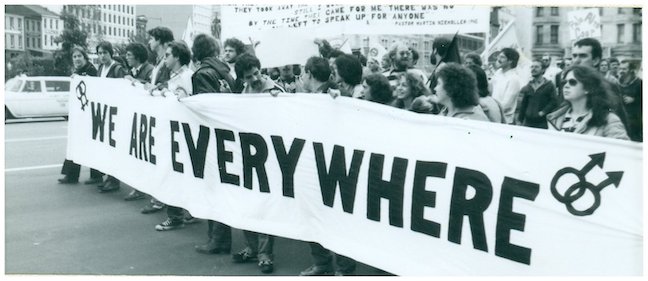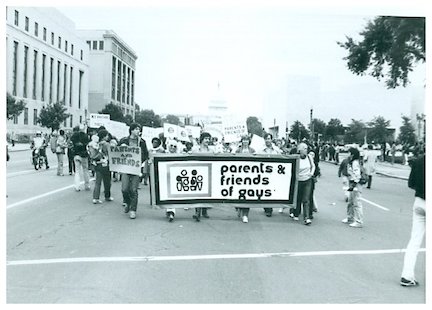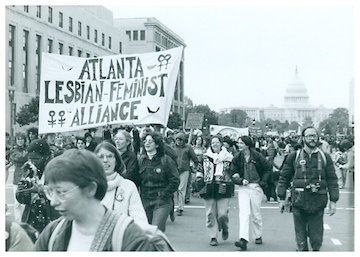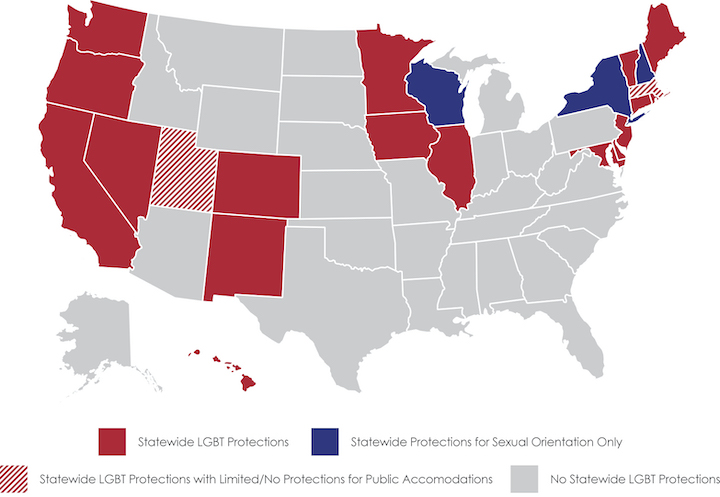"Everywhere, as far as the eye could see, were lesbian sisters and gay brothers – from all over, from all walks of life, gay human beings in number unanticipated, in a mood of exultant expectation like nothing ever before. This was our day; this was our Declaration of Independence. We were in the capital of our country. We were suddenly, as a mass of humanity, not as isolated individuals, free and dignified.”
- Gay Community News, October, 1979

ENDA Poster, April 11, 2011, Eric B. Meyer,
The Employment Non-Discrimination Act (ENDA) would provide protections for people in the LGBT community at work. ENDA would ban employers from discriminating against, refusing to hire, or firing people based on their sexual orientation or gender identity. ENDA would also help heterosexuals protect themselves from being discriminated against in the workplace. This would happen if they "looked gay" or associated themselves with LGBT people. This act has not yet passed as they are focusing all efforts on the Equality Act at this time.
"Don't Ask Don't tell"
In 1993, Bill Clinton signed a law called "Don't Ask Don't Tell." This law made it so that if you didn't share your sexuality, you couldn't get fired from the military. Clinton signed this law as a compromise to let gays and lesbians in the military, but they couldn't be open about it. This law made the LGBT community feel forced to hide their sexuality. Years later, Barack Obama repealed this policy on September 20, 2011, allowing gays and lesbians to serve in the military openly.

Kennedy, Chuck. “Don’t Ask, Don’t Tell Repeal Act” Wikimedia Commons, December 22, 2010
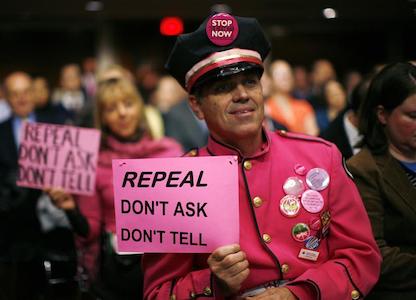
Lamarque, Kevin. “A Code Pink Protester Supports the Repeal of ‘Don’t Ask Don’t Tell,’” Reuters, December 2, 2010
Header photo credit: LGBT March on Washington, 14 Oct. 1979
